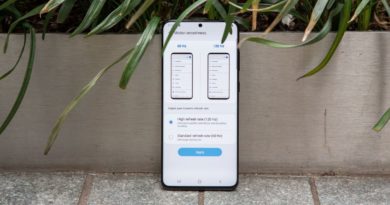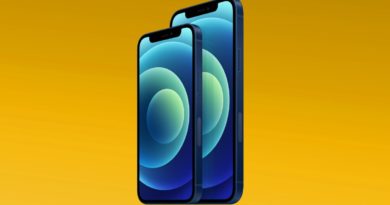How to know if someone blocked your number
It’s a terrible feeling: You meet someone new, you hit it off really well, and you’re texting back and forth a dozen times a day. But then the responses get fewer and farther between. Then they taper off entirely. And all you can do is wonder, “Did they block me?”
The answer is, “maybe.” If you’re looking for a definitive way to discover whether someone’s blocked your phone number, the bad news is that there isn’t one. The good news (well, as much as any news about this situation can be good) is that there are a few trial-and-error methods you can use to hazard a reasonably good guess.
If you fear that someone’s blocked your number, here are three simple ways to test that proposition. And this should go without saying, but if someone did block you: For the love of all that is good and holy, leave them alone. I promise you that anything you do to try to breach their privacy will only make the situation worse.
See how fast you get to voicemail
If you call a person who’s blocked your number, you won’t get any kind of notification about it. However, the ringtone/voicemail pattern won’t behave normally. When you call an unblocked number, you’ll get somewhere between three and a dozen rings, then a voicemail prompt. Alternatively, if the person’s phone is off, or if he or she is already on a call, you’ll go directly to voicemail.
A blocked number works a little differently. You’ll get one ring, then go right to voicemail. You’re free to leave a voicemail, although it won’t go directly to the recipient’s inbox. Instead, there’s a separate location for voicemails from blocked numbers. (How you access it depends on what kind of phone you have, and it’s not really relevant to this article.)
Basically: If you get a lot of rings or go right to voicemail, you’re probably not blocked. If you get one ring followed by a voicemail prompt, you probably are.
One other thing to keep an ear out for: a prerecorded message that says the number is “unavailable.” The exact message will vary depending on the recipient’s wireless carrier, but if a number is unavailable — especially if other phones can reach it — your number is almost certainly blocked.
Try sending a text message
Text messages can provide some clues about whether or not a person blocked you, although it’s a more reliable method for iOS than it is for Android. On iOS, after you send a text, you’ll usually get one of two notifications right underneath your message: “Delivered,” or “Read.” The former means that your text message went through, but the recipient hasn’t read it yet. The latter is self-explanatory.
However, if a person has blocked you, you won’t see either notification. Instead, there will just be a blank space beneath your text.
It’s worth noting that being blocked is not the only reason why you might not see a notification. If a user has his or her phone on Do Not Disturb mode, you won’t get any kind of notification until he or she turns that option off. However, if it’s been a few days and you still don’t see anything, you can consider blocking the most likely explanation.
If you and/or your intended recipient have Android phones, though, the process is much less straightforward. Some Android phones have this functionality; some don’t. Some message receipts work perfectly with iOS; some don’t. If you’ve got an Android phone, your best bet is to just send a text and hope you get a response.
Call from another phone
Sometimes, the simplest solution really is the best one. If you think you’ve been blocked, try calling the person’s number from another phone. Use your work phone, borrow a friend’s phone; it doesn’t really matter. The point is, if you can’t reach a person on your phone, but can reach them on another phone, there’s a good chance you’ve been blocked.
Try this sequence: Pick a time when it’s likely the person you’re calling will be free. Call on your phone. See what happens. Then, call on another phone immediately thereafter. Remember: You don’t need to actually reach the person; you just need to see how long it takes to go to voicemail.
Best-case scenario: You’ll be able to talk to the person and find out why they don’t want to accept your calls. (If they hang up on you immediately, that’s telling as well.) Worst-case scenario: You’ll live forever with the mystery of whether or not you’ve been blocked.
And yet, it’s not the worst mystery in the world, when you get right down to it. Whether a person is screening your calls indefinitely or has blocked you outright, the end result is the same: They don’t want to talk to you. Your best bet is usually to respect that, and maybe try again in a few months to see if things have calmed down.


